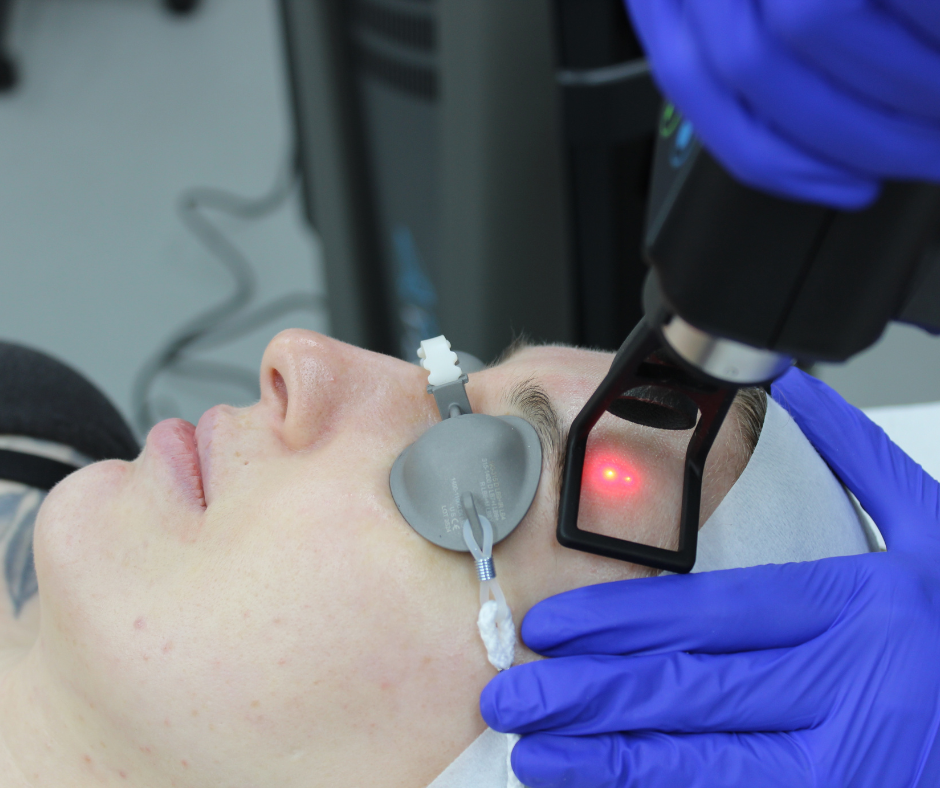
CO2 laser treatments are a highly effective solution for skin resurfacing, treating deep wrinkles, acne scars, and sun damage. But what age is best for CO2 laser treatment? The right age to undergo CO2 laser resurfacing varies depending on individual skin concerns and goals. Rather than focusing on a specific number, it is more important to assess when your skin could benefit from this advanced laser technology.
For most people in their 20s, CO2 laser treatments are not typically needed. At this stage, the skin is still producing high levels of collagen and is generally firm and resilient. However, if someone is struggling with severe acne scars that have not improved with other treatments, fractional CO2 laser can be a game-changer. This treatment helps smooth uneven skin texture and reduce deep acne scarring, making it a suitable option for younger individuals who want long-term skin improvement.
As people reach their 30s, early signs of ageing such as fine lines, pigmentation, and sun damage start to appear. This is when some individuals begin considering fractional CO2 laser as a preventative measure. The treatment stimulates collagen production, improving skin texture and reducing minor wrinkles before they become more pronounced. It can also help repair sun damage, it’s an ideal pigmentation treatment and mild skin laxity, making it a popular choice for those looking to maintain youthful, healthy skin.
By the 40s, the skin’s ability to regenerate naturally slows down, and more noticeable wrinkles, uneven skin tone, and loss of elasticity start to develop. This is often the ideal time for CO2 laser resurfacing, as it targets deeper layers of the skin, tightening and improving texture. Many people in this age range opt for fractional CO2 laser to rejuvenate their complexion and maintain a fresh, youthful look without resorting to more invasive procedures.
For those in their 50s and older, CO2 laser treatments can still provide significant benefits, particularly for deep wrinkles, sun spots, and severe skin laxity. The treatment works by removing damaged skin layers and promoting new collagen production, resulting in a smoother and firmer appearance. However, healing time may be longer compared to younger individuals, and combining laser resurfacing with other skin-tightening procedures may yield the best results.
There is no single “best” age for CO2 laser treatment – it depends on your skin’s condition and what your concern is. While younger individuals may use it to treat acne scars, those in their 30s and 40s may turn to it for early anti-ageing benefits. For individuals in their 50s and beyond, it serves as a powerful tool to reverse significant skin damage. Consulting with experienced practitioners at SRGN Clinic is essential to determine the most appropriate time to undergo CO2 laser based on your skin type, concerns, and long-term aesthetic goals.
A good candidate for CO2 laser treatment is someone looking to improve skin texture, reduce wrinkles, or treat acne scars, sun damage, or pigmentation issues. This treatment is particularly beneficial for individuals with fine lines, deep wrinkles, uneven skin tone, or visible signs of ageing that haven’t responded well to skincare or non-invasive treatments.CO2 laser works best on those with fair to medium skin tones, as darker skin types may have a higher risk of pigmentation changes. It’s ideal for people who are in good overall health, do not smoke, and have realistic expectations about the healing process and results. Since CO2 laser involves resurfacing the skin, it’s important that candidates are committed to proper aftercare, including sun protection, to maximise results and minimise complications.
Carbon laser treatment, often referred to as the "Hollywood Peel," is a gentler laser procedure compared to CO2 laser and is suitable for a wide range of ages. There is no strict age limit, as the treatment is safe for both younger individuals dealing with oily skin and acne, as well as older individuals looking to improve skin tone and texture.Typically, those in their 20s and 30s use carbon laser treatments for acne control, pore refinement, and brightening dull skin, while those in their 40s and beyond benefit from its mild anti-ageing effects. Unlike CO2 laser, which requires downtime, carbon laser treatments are non-invasive and can be performed regularly as part of a skincare routine. However, it is always best to have a consultation to assess individual suitability, particularly for those with sensitive skin or underlying skin conditions.
CO2 laser is a powerful skin resurfacing treatment, but it’s not suitable for everyone. Individuals with darker skin tones may be at a higher risk of hyperpigmentation or hypopigmentation, making fractional laser alternatives or gentler treatments a better option.People with active acne, open wounds, or certain skin conditions such as eczema, psoriasis, or rosacea should avoid CO2 laser, as it can worsen irritation and inflammation. Those with a history of keloid scarring or poor wound healing should also be cautious, as laser resurfacing can increase the risk of scarring.Additionally, individuals taking certain medications, commonly used for severe acne, should wait at least six months after stopping treatment before considering CO2 laser to reduce the risk of adverse reactions. Pregnant or breastfeeding women should also avoid CO2 laser due to the potential for skin sensitivity and the body's unpredictable response to laser treatments during this period.Before undergoing CO2 laser, it is crucial to have a thorough consultation with our qualified practitioners to assess skin health, discuss medical history, and determine if this treatment is the right option.